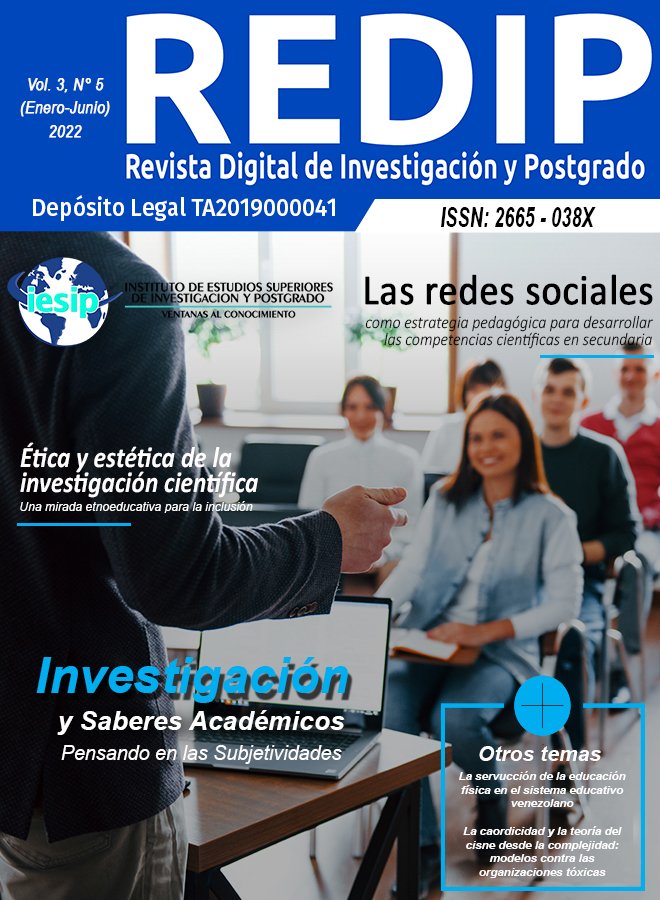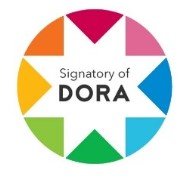Ethics and aesthetics of scientific research
An ethno-educational approach to inclusion
DOI:
https://doi.org/10.59654/xvs82327Keywords:
Ethics, aesthetics of scientific research,. ethno-education, inclusion.Abstract
This article establishes the relationship between the ethics and aesthetics of research from an
ethno-educational perspective, for which it was necessary to interpret the action of educating,
which necessarily contemplates teaching and learning and all that these two processes represent, taking as a fundamental framework the pedagogical act, supported and contextualised from the perspective of the culture corresponding to the social, ethnic and geographical context where it is carried out for the consolidation of the educational event. In this sense, it is important to recognise that the educational experiences (ethno-educational) that take place in ethnic spaces must be carried out in accordance with intercultural and ancestral practices that favour the recognition
and self-recognition of their identities in such a way that they are inclusive, favour dialogue
and the recognition and encounter with the other, respecting differences.From this
framework, this article justifies the interpretation of the importance of the ethics and aesthetics of research, from an ethno-educational perspective, as this is a concrete educational project, which derives from a state and community commitment as a guarantee of preservation of ethniccultural diversity, which in turn seeks to respect the difference, identity and authenticity of each group or community, taking into consideration their ideologies, customs, customs, beliefs and language. This reflection leads to an analysis of the challenges of ethno-education in intercultural contexts with specificity in the Afro-Colombian community in their intercultural contexts mediated by their ancestral practices.
Downloads
References
Asamblea Nacional Constituyente. (1991). Constitución Política de Colombia, 1991. Presidencia de la Republica. Bogotá.
Bilbeny, N. (1992). Aproximación de la ética. Editorial Ariel, Barcelona. Cortina, A. (1996). Ética. Editorial Akal.
Hartmann, N. (1989). Ética. En Antología de Ética. Editorial UNAM.
Lander, E. (Coord.) (2000). La colonialidad del saber: eurocentrismo y ciencias sociales. Perspectivas latinoamericanas. Caracas, Faces – UCV.
López, Z. R. (2013). Ética profesional en la educación superior. Perfiles Educativos, XXXV (142), 2-5.
Meneses C. Y. A. (2016). La etnoeducación afrocolombiana: conceptos, trabas, patriarcado y sexismo. A propósito de los 20 años de la Ley General de Educación 115 de 1994. Revista Historia de la educación latinoamericana, 19(27), (2016), 35-66.
Ministerio de Educación Nacional —MEN— de Colombia (1994). Ley 115 de 1994. Por la cual se expide la ley general de educación. Recuperado de: https://www.mineducacion.gov.co/1621/articles-85906_archivo_pdf.pdf.
Romero, L. F. (2008). La Educación Indígena en Colombia: Referentes conceptuales y socio históricos. http://www.arqueologia.com.ar/congreso2002/ponencias/fernando_romero_loaiza.ht.
Sanudo, L. E. (2006). La ética en la investigación educativa. Hallazgos, (6), 83-98. https://www.redalyc.org/articulo.oa?id=413835165006.
Stella, M. (2021). Seminario Ética y Estética de la Investigación Emergente (Narrativa). Postdoctorado en Investigación Emergente. UNITEC-REDIT. Valencia: Venezuela.
Downloads
Published
Issue
Section
License
Copyright (c) 2021 Revista Digital de Investigación y Postgrado

This work is licensed under a Creative Commons Attribution-NonCommercial-ShareAlike 4.0 International License.
Esta licencia permite a los reutilizadores distribuir, remezclar, adaptar y desarrollar el material en cualquier medio o formato únicamente con fines no comerciales, y solo siempre que se atribuya al creador. Si remezclas, adaptas o construyes sobre el material, debes licenciar el material modificado bajo términos idénticos. CC BY-NC-SA incluye los siguientes elementos:
![]() POR: se debe dar crédito al creador.
POR: se debe dar crédito al creador.![]() NC: Sólo se permiten usos no comerciales de la obra.
NC: Sólo se permiten usos no comerciales de la obra.![]() SA: Las adaptaciones deben compartirse en los mismos términos.
SA: Las adaptaciones deben compartirse en los mismos términos.











